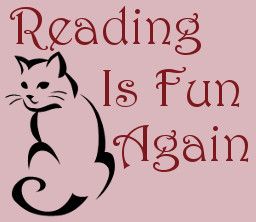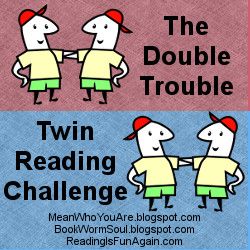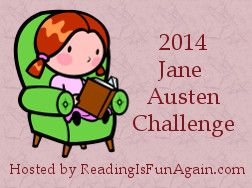Author: JJ Abrams & Doug Dorst
Publisher: Mulholland Books
Publication Date: October 2013
Length: 473
Series: Stand Alone
Audio or Book: Book
Reason for Discovery: the Internet & Angela's review
From GoodReads:
A young woman picks up a book left behind by a stranger. Inside it are his margin notes, which reveal a reader entranced by the story and by its mysterious author. She responds with notes of her own, leaving the book for the stranger, and so begins an unlikely conversation that plunges them both into the unknown.
THE BOOK: Ship of Theseus, the final novel by a prolific but enigmatic writer named V. M. Straka, in which a man with no past is shanghaied onto a strange ship with a monstrous crew and launched onto a disorienting and perilous journey.
THE WRITER: Straka, the incendiary and secretive subject of one of the world’s greatest mysteries, a revolutionary about whom the world knows nothing apart from the words he wrote and the rumours that swirl around him.
THE READERS: Jennifer and Eric, a college senior and a disgraced grad student, both facing crucial decisions about who they are, who they might become, and how much they’re willing to trust another person with their passions, hurts, and fears.
S. is a very curious book and a unique reading experience. When you sit down to read S., you have several different layers of reading. First, you can read Ship of Theseus, which the actual book in this package of materials (for lack of a better descriptor). Second, you have handwritten notes that are written in the margins of Ship of Theseus. These notes are written between Jennifer and Eric. The notes are written in different colored inks to distinguish the writer and the place in time in which the notes are written (e.g., notes from different points in their relationship and their understanding of the book appear on the same page). Third, you have postcards, maps, and letters bookmarking different spots in the book. Together, the book, the handwritten notes, and the physical objects create a story.
I remember when this "book" was about to come out, because everyone was talking about it. I remember the trailers and the interviews. I quickly forgot about it, but then I became interested in it again when I started seeing reviews for it on the Internet. The reviews were a bit all over the place, but the concept of the book sounded so neat that I needed to give it a read. At a retail price of ~$30 and Amazon being sold out, I decided to check my local library. There was a bit of a comedy of errors with getting my hands on this book (the book went missing on the shelves for a while and then someone found it and checked it out), but eventually I got it. I want to give a shout out to my library, because they handled the extra materials super well. All of the extra materials (except for two items which were in a pocket in the front of the book) were taped to the correct page in such a way that you could still read the book and see both sides of the extra materials. It was quite ingenious on the librarians' part. Apparently libraries handled these materials in very different ways (e.g., some libraries removed the extra materials and some put all the materials in an envelope in the back), so just be warned that your reading experience may vary if you get this book from the library.
I had all sorts of feelings while going through this book. First, and foremost, I thought this reading experiment/reading experience was quite neat. I love the idea of having layers to my reading. I felt like an archeologist sifting through the text, notes, and extra materials (e.g., letters and postcards). I am a fan of the epistolary format, so having handwritten notes as part of the story made the experience feel real to me. I liked imagining that Jennifer and Eric were real people, and I just came across their book. Second, I really like that this book took on a life of its own on the Internet. There are websites devoted to the mysteries in the book. I love it when a story clicks with a lot of people and communities spring up around a book or a book series.
Although I really liked what this book was trying to do, I must admit that I found the story itself to be dull and disappointing. Ship of Theseus is written as an obtuse, "fantasy," potentially politically-charged novel. Personally, I found the story to be horribly dull. I don't feel bad saying this, because I think that Abrams and Dorst intentionally wrote the story this way. Ship of Theseus is supposed to be a stereotypically dense story. At the same time, it is a dense story, and I am a bit frustrated that I spent my time reading it. In regards to the notes between Jennifer and Eric, I had mixed feelings about them. Some of the notes were fun and cute; however, I had two major problems with them. First, in the beginning of the greater story, Jennifer and Eric were only conversing through the book; however, their initial notes do not read like this. There are assumptions made that wouldn't have been made, if the notes had truly been written by people who only talked via this particular copy of Ship of Theseus. Second, theoretically, Jennifer and Eric are making annotations in the book and talking to each other through this book. However, they are picking the pages almost at random at times. Am I supposed to believe that each time one of these two characters got the book, they paged through the entire book? Real people wouldn't do this. This commenting system just felt out of sorts and not realistic to me.
I should make mention of the overall plot that links this entire reading experience together. The book bills itself as a mystery: Jennifer and Eric are trying to figure out who Straka is and what Ship of Theseus is all about. In the end, the plot takes on a different and a tired direction.
Overall, I really enjoyed what this book was trying to do. The concept is horribly exciting. At the same time, the final product was disappointing. I would have loved to see this concept taken up by someone like Neil Gaiman who is familiar with writing in different written media (e.g., graphic novels, short stories, and novels). I feel Gaiman could have written a stronger story and had better interaction across the book, handwritten notes, and the extra materials.
I give this book a 2 out of 5.
 |
| Okay |















